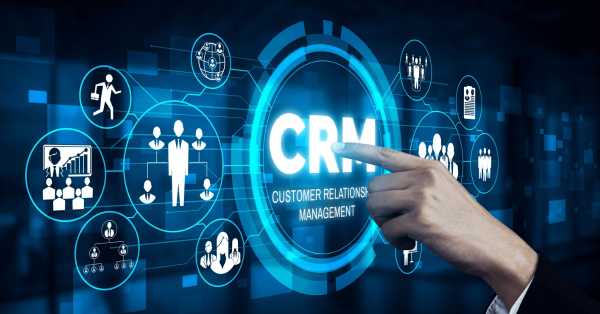How to Use CRM Tools for Business Growth
Benefits of CRM Tools for Business Growth CRM tools are essential for businesses seeking growth and sustainability in today’s competitive landscape. By centralizing customer data and interactions, these tools provide valuable insights into consumer behavior, preferences, and purchasing patterns. This information enables businesses to tailor their products and services to meet the specific needs of […]
Benefits of CRM Tools for Business Growth
CRM tools are essential for businesses seeking growth and sustainability in today’s competitive landscape. By centralizing customer data and interactions, these tools provide valuable insights into consumer behavior, preferences, and purchasing patterns. This information enables businesses to tailor their products and services to meet the specific needs of their target audience, ultimately driving customer satisfaction and loyalty. Furthermore, CRM tools help businesses streamline their sales and marketing efforts, leading to increased efficiency and effectiveness in reaching and engaging potential customers.
In addition to data management, CRM tools also facilitate better communication and collaboration within organizations. By providing a centralized platform for all customer-related activities, these tools enable teams to work together seamlessly towards common goals, resulting in improved productivity and outcomes. This enhanced coordination also ensures that customer inquiries and issues are addressed promptly and efficiently, further enhancing customer satisfaction and retention rates.
Identifying and Understanding Customer Needs
In order for a business to thrive and succeed in today’s competitive market, it is crucial to have a comprehensive understanding of customer needs. By delving deep into the desires and expectations of customers, companies can tailor their products and services to meet these requirements effectively. This personalized approach not only fosters customer satisfaction but also cultivates long-term relationships with a loyal client base.
Prioritizing the identification of customer needs allows businesses to stay ahead of the curve in an ever-evolving market landscape. Through various market research techniques and data analysis, companies can gain valuable insights into consumer preferences and behaviors. Armed with this knowledge, organizations can adapt their strategies and offerings to align with customer demands, ultimately increasing customer retention and driving business growth.
Improving Customer Relationships
Building strong customer relationships is crucial for businesses aiming for long-term success. Effective communication plays a key role in ensuring that customers feel understood and valued. By actively listening to their feedback and addressing their concerns promptly, businesses can build trust and loyalty with their customer base.
Moreover, businesses can enhance customer relationships by personalizing their interactions. Tailoring products or services to meet individual customer needs and preferences shows that the business values their customers as individuals. This personalized approach not only increases customer satisfaction but also fosters a sense of connection and loyalty towards the brand.
Automating Sales and Marketing Processes
In today’s fast-paced business environment, streamlining sales and marketing processes is essential for staying ahead of the competition. By leveraging automation tools, companies can effectively manage leads, track customer interactions, and personalize marketing campaigns at scale. Automation not only saves time and resources but also ensures a consistent and cohesive approach to engaging with prospects and customers.
Automating sales and marketing processes enables businesses to nurture relationships with leads through targeted communication and timely follow-ups. With automated workflows in place, sales teams can prioritize their efforts towards leads that are most likely to convert, while marketing teams can deliver relevant content based on individual preferences and behaviors. This seamless integration of sales and marketing efforts not only accelerates the sales cycle but also enhances the overall customer experience, leading to increased loyalty and retention.
Enhancing Customer Engagement
Customer engagement plays a vital role in fostering loyalty and building lasting relationships. By leveraging CRM tools effectively, businesses can personalize interactions with customers, creating a sense of value and care. These tools enable companies to tailor their communication strategies based on customer preferences and behaviors, leading to more meaningful engagement opportunities.
Moreover, enhancing customer engagement through CRM tools allows businesses to gather valuable insights about their target audience. By analyzing customer data and interactions, companies can gain a better understanding of customer needs and preferences. This information can then be used to deliver targeted marketing campaigns and personalized offerings, ultimately driving customer satisfaction and loyalty.
















